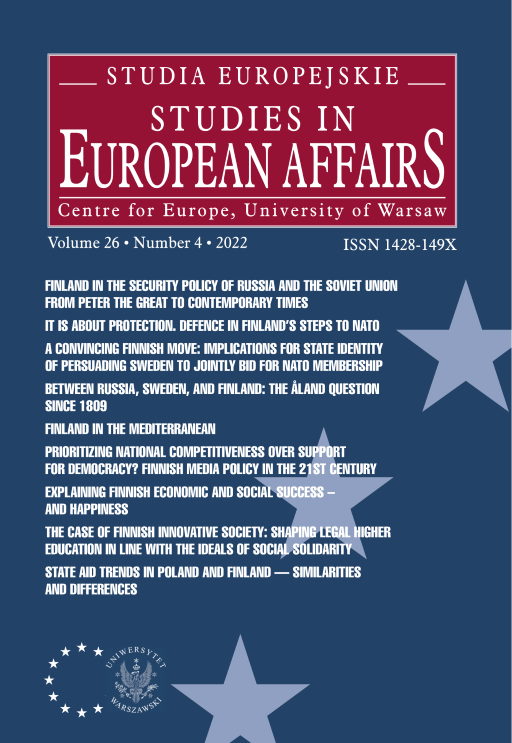Explaining Finnish Economic and Social Success – And Happiness
Explaining Finnish Economic and Social Success – And Happiness
Author(s): Jan Otto AnderssonSubject(s): History, Social Sciences, Economy, National Economy, Sociology, Economic history, Political history
Published by: Centrum Europejskie Uniwersytetu Warszawskiego
Keywords: Finland; International Rankings; Competitiveness; Happiness; Geo-historical Impacts;
Summary/Abstract: This article explores the reasons behind the high economic and socialrankings for Finland. It also reflects on why Finland is considered the “happiest” country in the world (according to a World Happiness Report). Using empirical data from two studies – an article comparing high-andlow-tax countries, and the aforementioned recent World Happiness Report– it compares Finland with its Nordic neighbours and other Western, especially Anglo-American, countries. The essay outlines a so-called “Finnish model’ and looks for the roots of this model. Comparing measuresin several dimensions – effort, culture, institutions, and economic andsocial outcomes – the essay tries to find characteristics that are particularfor Finland. Education, innovation, and economic security, as well as trust, gender equality, resilient conflict solutions, and geo-historical luck, arecrucial to Finland’s success. Three notable Germans – Luther, Hegel, and Marx – have influenced Finnish culture and society in different ways. Is Finland the country that comes closest to the ideal – “From each according to his ability, to each according to his needs” (Marx, 1875).
Journal: Studia Europejskie
- Issue Year: 26/2022
- Issue No: 4
- Page Range: 177-198
- Page Count: 22
- Language: English

